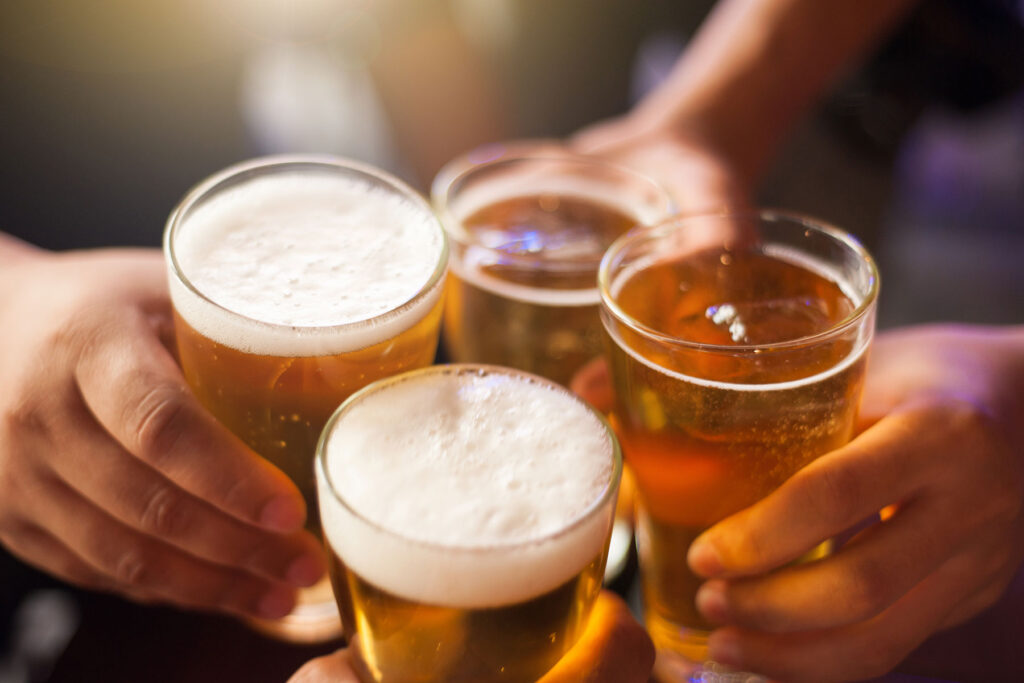Non-alcoholic beer is quickly gaining traction today. But what is it, and is it safer to drink than alcohol? Today, there are several different brand-name and craft non-alcoholic beers, creating more options for anyone who drinks alcohol. Studies, however, have shown that this might not be the best option for some people, like alcoholics who are in recovery. At The Arbor Behavioral Health, alcohol addiction treatment in Georgetown, Texas can provide individuals and those who care about them with the necessary information to stay on the path to recovery.
Does Non-Alcoholic Beer Contain Alcohol?
Non-alcoholic beer, also known as near beer, can be misleading. It’s not required to be alcohol-free and can contain some alcohol according to labeling regulations. Standard beer varies considerably in alcohol content, with the average containing around 5% alcohol per beer. Low-alcohol beer typically has between 0.5% and 1.2% alcohol, while non-alcoholic beer can have up to 0.5% alcohol.
There are very few non-alcoholic beers that are completely free of alcohol. Some studies suggest that non-alcoholic beers may have more alcohol than indicated on the label. Even if it claims to be 0.5% alcohol, there might be a higher amount present. This makes non-alcoholic beer not suitable for those who need to completely abstain from alcohol.
Is Non-Alcoholic Beer Safe for Pregnancy?
Studies show that alcohol can seriously harm a growing baby. The exact amount that is dangerous is unknown, but frequent drinking or a single binge can be damaging. There is no known safe amount of alcohol. Most women will avoid alcohol completely during pregnancy. While non-alcoholic beer may seem like a safer option, it can still contain alcohol, so it’s best to avoid it. Pregnant women who have concerns should inform their obstetrician.
Are there Risks of Drinking Non-Alcoholic Beer?
There are risks associated with drinking alcohol, but are they lowered with a reduced alcohol intake? In some cases, they can be. Some studies have shown that non-alcoholic beer can help reduce the time it takes for someone to fall asleep or help with anxiety. Non-alcoholic beer, nevertheless, can still contribute to liver damage. It’s still not a safe option for those worried about liver-related medical conditions or who are already suffering from medical issues with their liver. It is also dangerous to those suffering from pancreatitis.
Since most alcohol is processed through the liver, even a small amount of alcohol in non-alcoholic beers can cause further damage to those who are already suffering from issues with their liver. This includes cirrhosis of the liver and a condition known as a fatty liver. Those who already have either of these conditions, other liver conditions, or are at risk of developing these conditions will want to refrain from alcohol, including non-alcoholic beers.
Is Drinking Non-Alcoholic Beer Safe for Alcoholics?
Once in a rare while, someone will tout non-alcoholic beer as an excellent alternative for recovering alcoholics, but this is not the case. The claim is that the person can still enjoy a beer now and again without worrying about drinking a lot of alcohol. They won’t be able to get drunk, will not be at risk of driving drunk, and will significantly reduce the amount of alcohol they drink, which could help prevent medical issues they might be at risk for.
The problem with this claim is that even non-alcoholic beer can trigger cravings, resulting in a relapse for many alcoholics. Triggers can occur because of the smell of the beer, the act of opening a bottle or a can, the taste of the beer, or just the idea that they’re able to have a beer. These feelings reminded them of when they used to drink, and without realizing it, they could easily switch back to drinking a standard beer and relapse into their alcoholism.
What People in Recovery Need to Consider
Sobriety is difficult, and many people have already lived for years trying to bend as many rules as possible to continue to drink or use drugs. If they have a non-alcoholic beer, it’s just one more rule they’ve bent to be able to continue abusing alcohol. Though they might not be at risk for driving under the influence, they’re not going to get drunk from the non-alcoholic beer, and they are significantly decreasing the amount of alcohol they’re drinking. The fact is, they’re still drinking alcohol. This can trigger a relapse into alcoholism or drug addiction.
Another concern is that non-alcoholic beer may contain more alcohol than expected, leading to unintended consumption. Even consuming one or two drinks in the evening, while not resulting in intoxication, can trigger cravings and relapse. Individuals aiming for a successful recovery should abstain from any alcohol, including non-alcoholic beers. Although non-alcoholic beers are gaining popularity, they may not be suitable for everyone. Pregnant or breastfeeding individuals, those with liver conditions, or individuals recovering from substance abuse should avoid non-alcoholic beers, just like standard beers.
Learn More and Find Support at Arbor Behavioral Health
Though they’re called non-alcoholic, these beers do contain some alcohol, which means they’re not an option for anyone who wants or needs to stop drinking alcoholic beverages completely. Contact us by calling 844.413.2690 to learn more.


